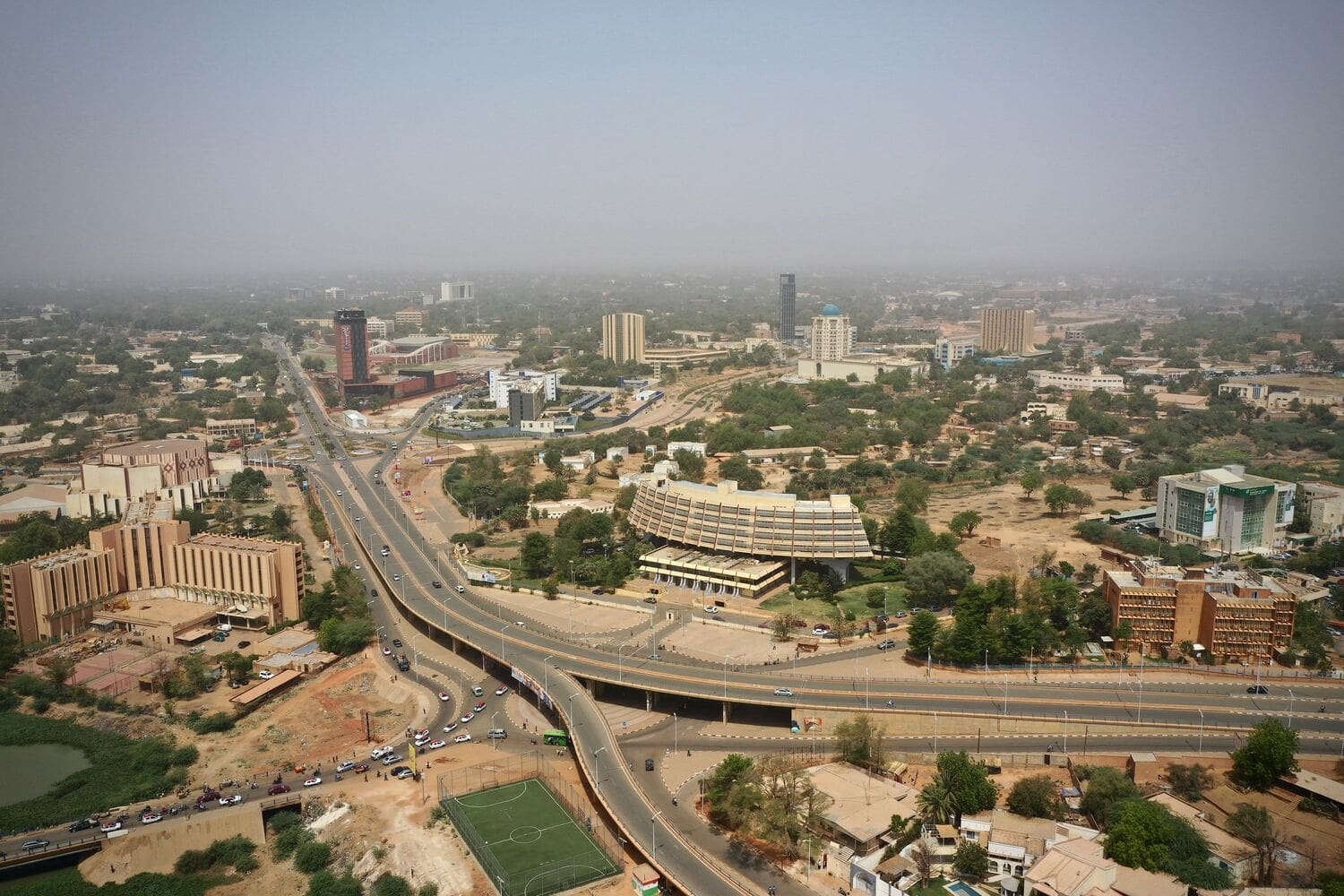Niamey is a city that often remains off the main tourist routes, yet it hides many unique features and intriguing secrets. As the capital of Niger, it is located in the very heart of West Africa, at the crossroads of ancient trade routes and modern urbanization. The life of the city depends greatly on the Niger River, its arid climate, and a multiethnic culture that can be seen in its architecture, cuisine, and everyday customs. Discover fascinating and little-known facts about Niamey that might surprise you and help you see this city from a new perspective.
- Niamey is the administrative, economic, and cultural capital of Niger. The city is located in the southwest of the country, on both banks of the Niger River, which plays a vital role by providing water and fertile land for agriculture.
- The Niger River is one of the city’s greatest assets. It serves not only as a water source but also as a natural transportation route, a place for fishing, and an important element of local traditional festivals and rituals.
- The population of Niamey exceeds 1.5 million people and continues to grow rapidly. More than ten ethnic groups live here, with the Hausa, Zarma, Songhai, Fulbe, and Tuareg being the largest.
- The official language of the city, as in the whole country, is French, but on the streets you can often hear Hausa, Zarma, and other local languages, highlighting the cultural diversity of Niamey.
- The climate in Niamey is extremely hot and dry. For most of the year, daytime temperatures stay above 35 degrees Celsius, and rainfall occurs only during the short season from June to September.
- Despite the harsh climate, there are many green areas in the city thanks to the Niger River and irrigation systems. Palms, acacias, and mango trees can even be found in central parts of Niamey.
- The architecture of Niamey combines traditional African motifs with colonial heritage and modern administrative buildings. The Grand Mosque with its minaret and white facade stands out as a remarkable landmark.
- One of the most interesting places in the city is the Grand Market of Niamey, which serves as a vibrant center of urban life. Here you can buy colorful fabrics, spices, handmade crafts, souvenirs, and fresh fruit, and the atmosphere is always full of local flavor.
- The city has several museums, including the National Museum of Niger. Visitors can explore exhibitions dedicated to ethnography, archaeology, natural history, and see displays about the traditional lifestyles of local peoples.
- Numerous street markets are a characteristic feature of Niamey, where you can not only shop for food but also interact with local residents and learn about traditional recipes and customs.
- Education in Niamey plays a strategic role for the whole country. The largest university in Niger, Abdou Moumouni University, is located here and serves as a leading center for science, medicine, and agricultural research.
- The city has its own international airport, which connects Niamey to major cities in Africa and Europe. It is an important transport hub for both passenger and freight traffic.
- Infrastructure in the city is developing: new roads are being built, bridges over the Niger River are constructed, and modern hotels and administrative buildings are appearing along the main avenues.
- Local people are known for their hospitality and openness. In Niamey, ancient traditions are still respected, elders are honored, and guests are often offered traditional tea or coffee.
- Niamey is an important cultural center where national holidays, music, theater, and dance festivals take place. Here you can watch performances by traditional musicians, folklore groups, and contemporary artists.
- One of the main challenges for the city is the shortage of drinking water and electricity. The authorities are implementing infrastructure projects, but Niamey still faces difficulties common to many regional capitals.
- Among the popular dishes in Niamey are couscous, millet porridge, goat meat soup, and spicy peanut-based sauces. The local cuisine is simple but rich in spices and flavors.
- Sport, especially football, is highly valued in the city. Niamey has its own stadium where national matches are held, as well as various sports schools for young people.
- Religion plays an important role in the city’s life. Most residents are Muslim, which is reflected in festive traditions, architecture, and styles of clothing.
- Niamey has preserved many examples of traditional African art. In workshops and shops you can find wooden masks, sculptures, jewelry, and painted fabrics.
- Despite the rapid population growth, the city offers places to relax in nature. Boat trips on the Niger River are especially popular, where you can admire the sunset or watch birds.
These fascinating facts about Niamey show how multifaceted and unique the city is in its simplicity and authenticity. Life here is closely connected to nature, history, and the traditions of local communities. Many incredible facts about Niamey are still waiting to be discovered, and every visit can be the start of a new cultural adventure. That is why Niamey attracts those who appreciate real Africa, its hospitality, and its one-of-a-kind atmosphere.





